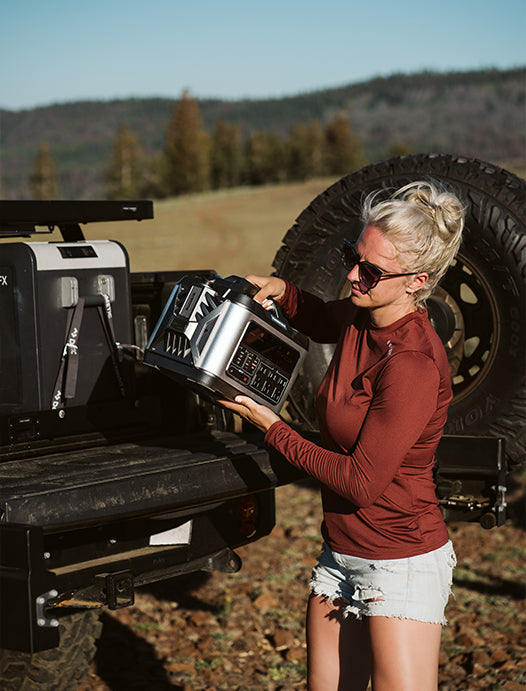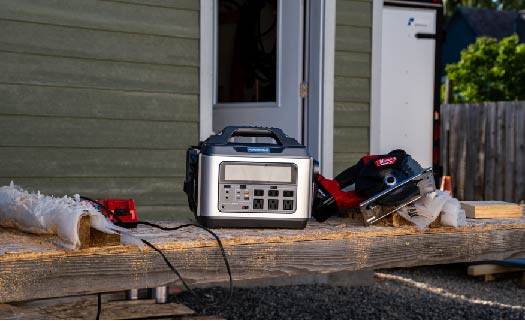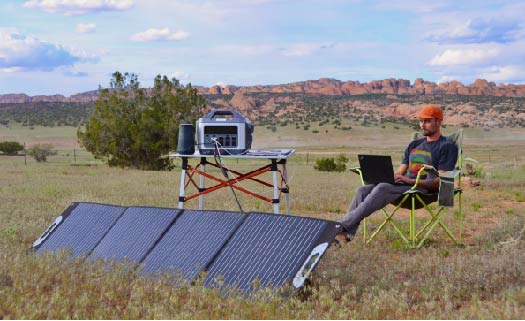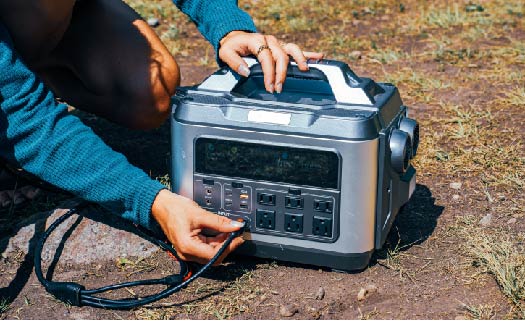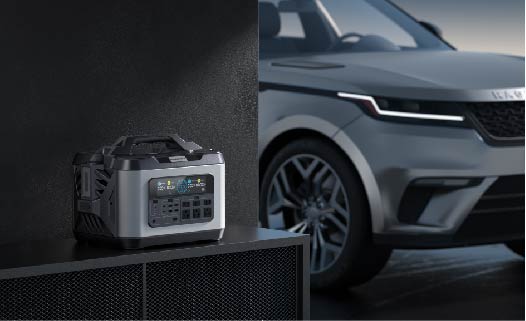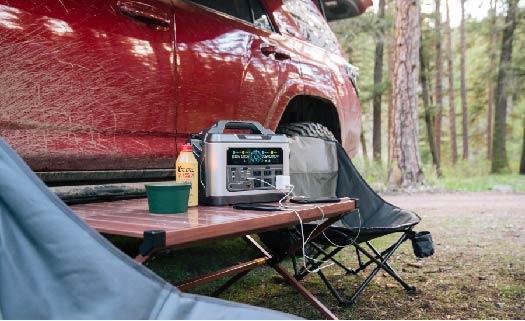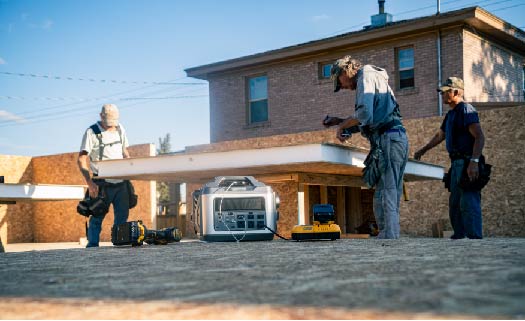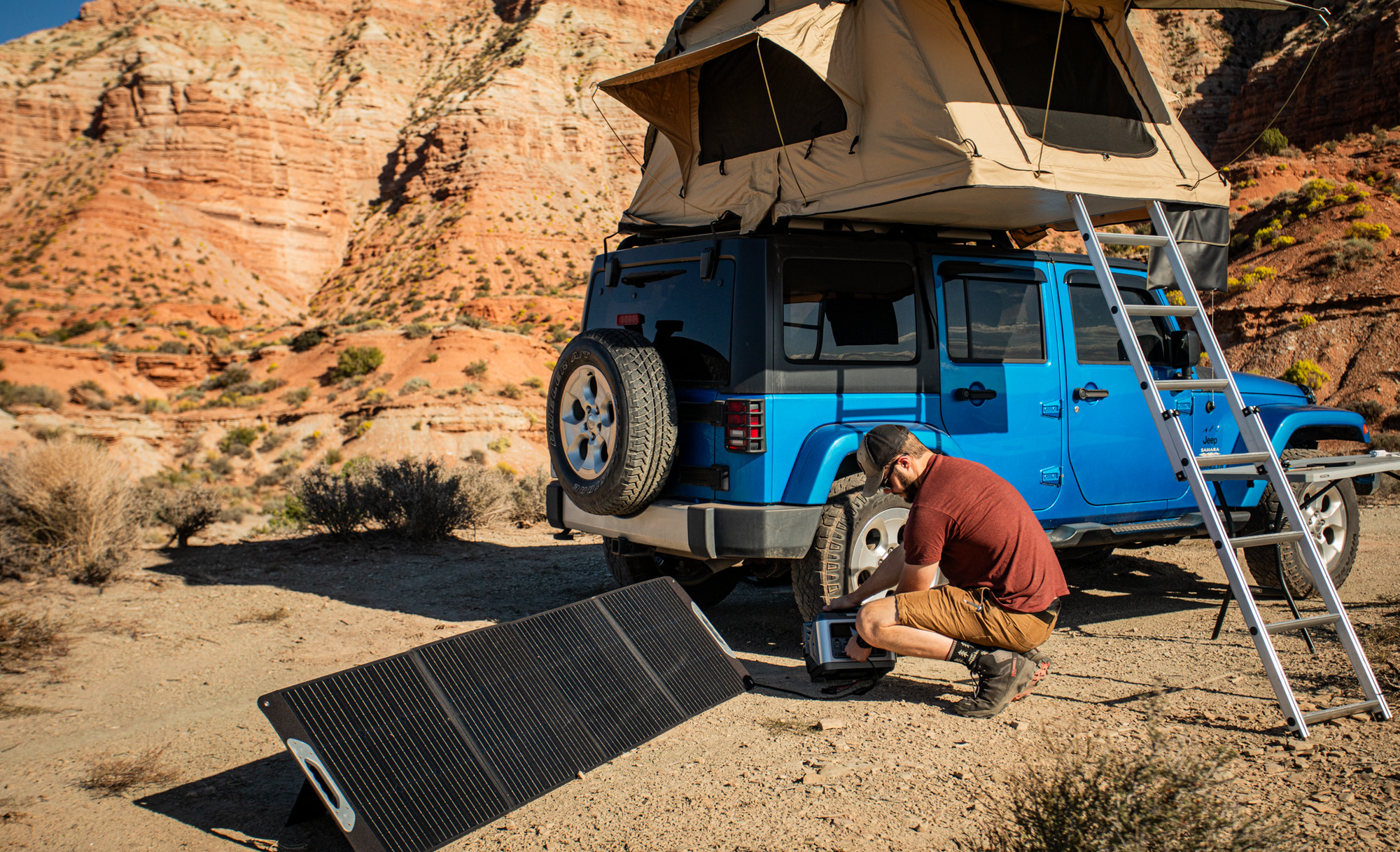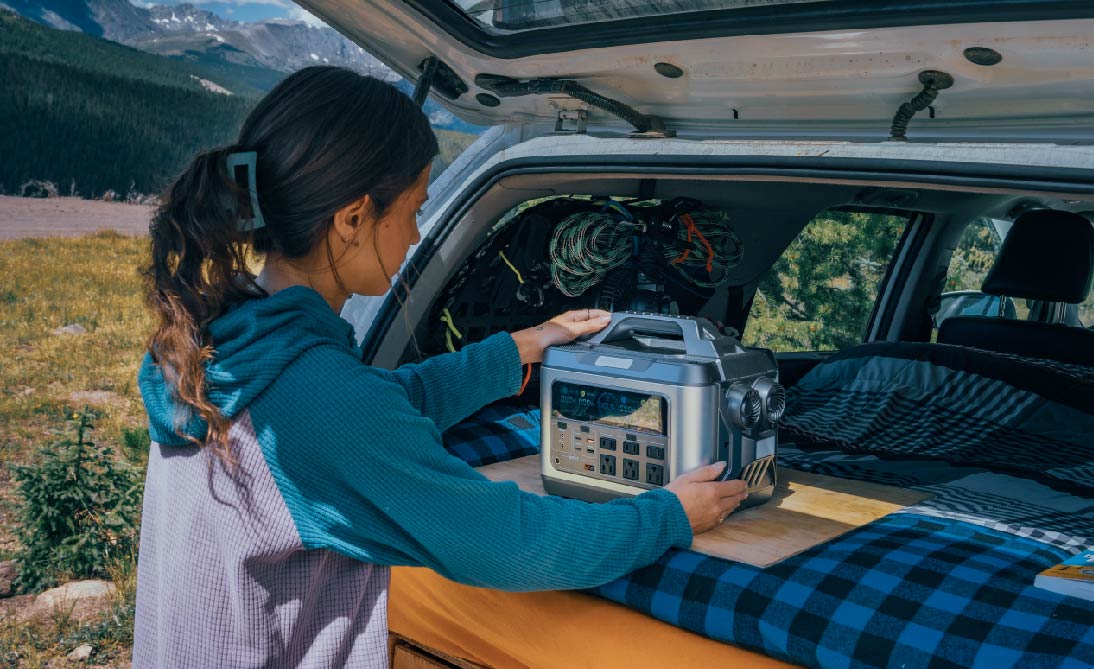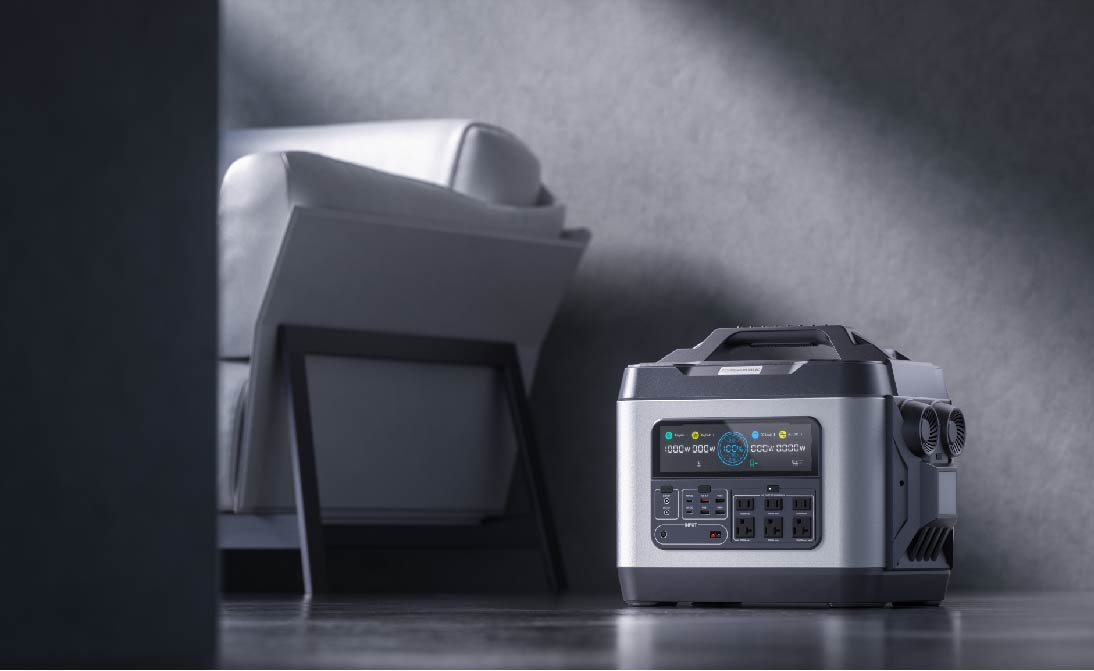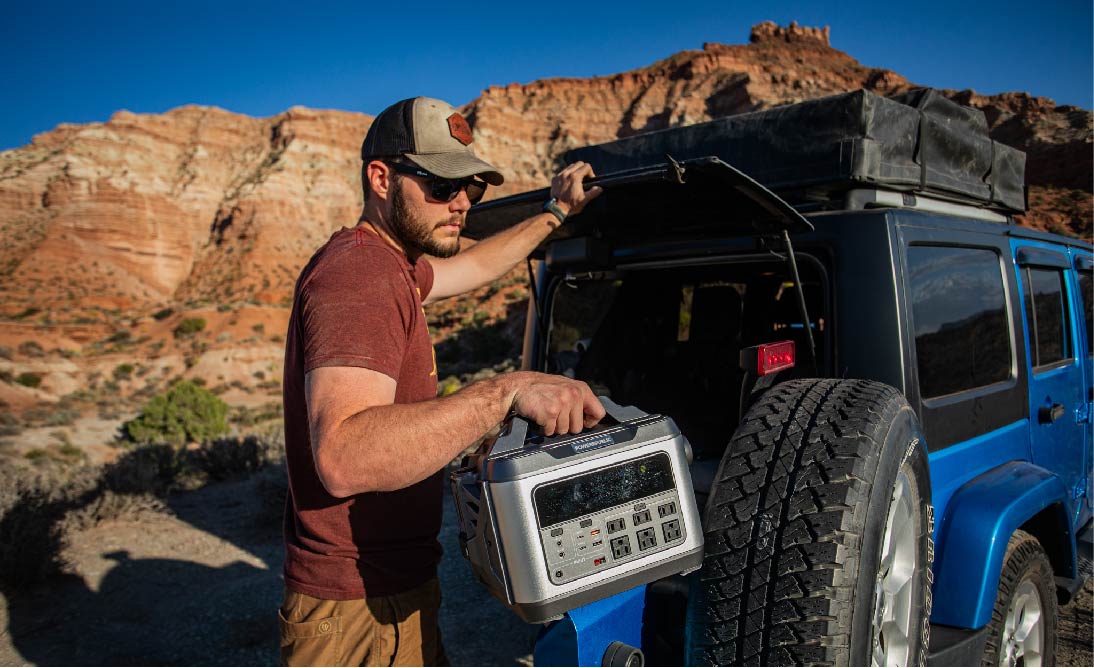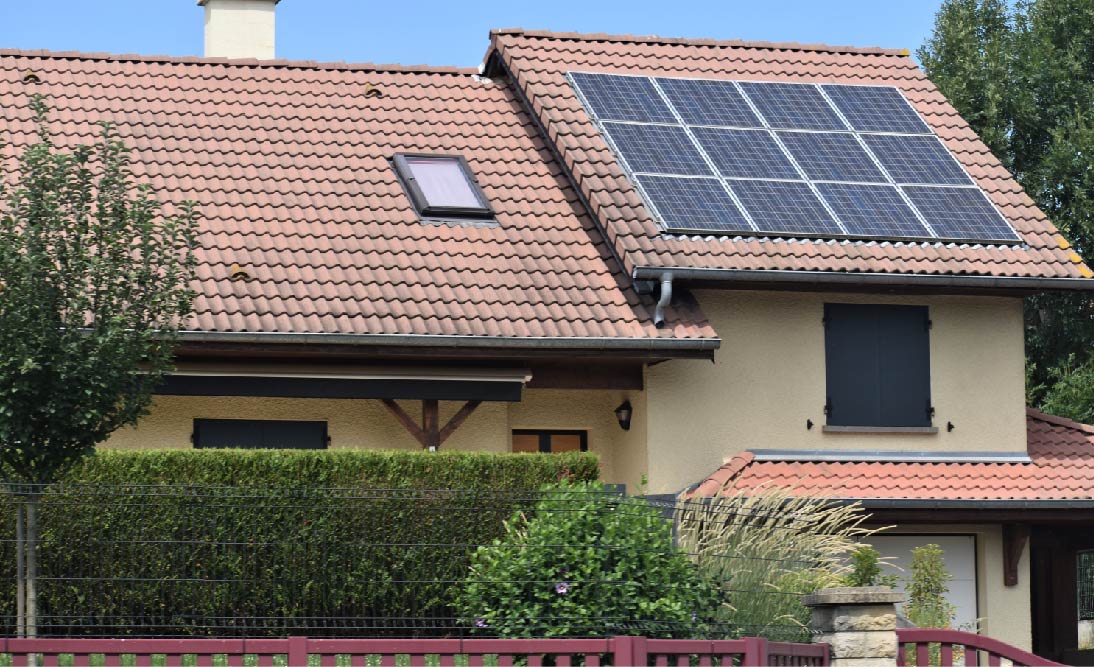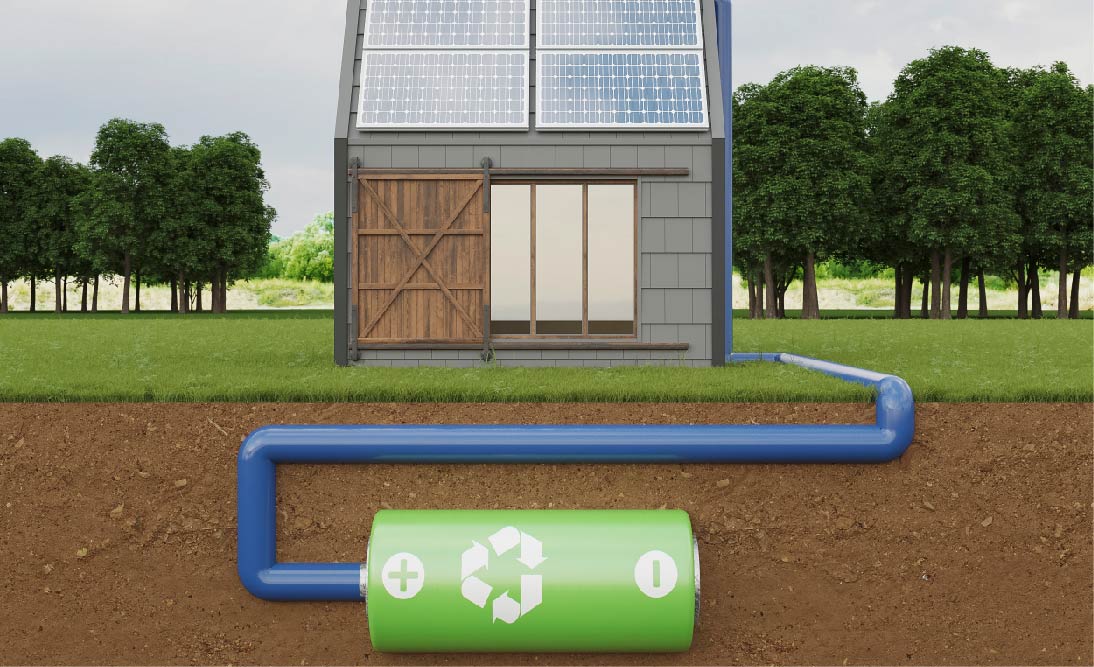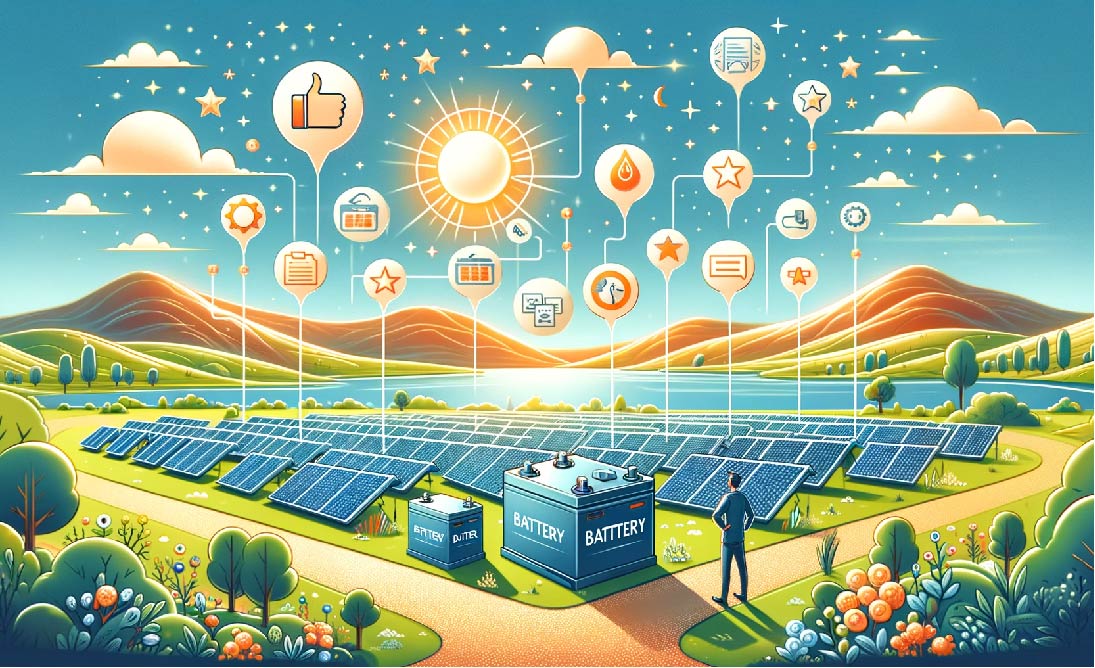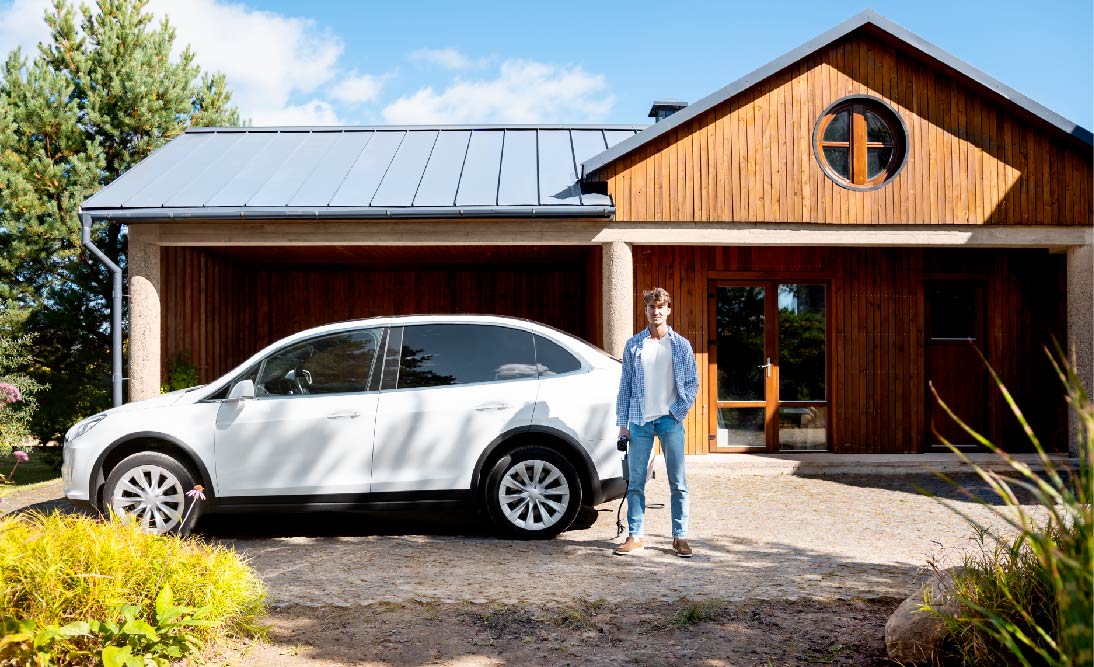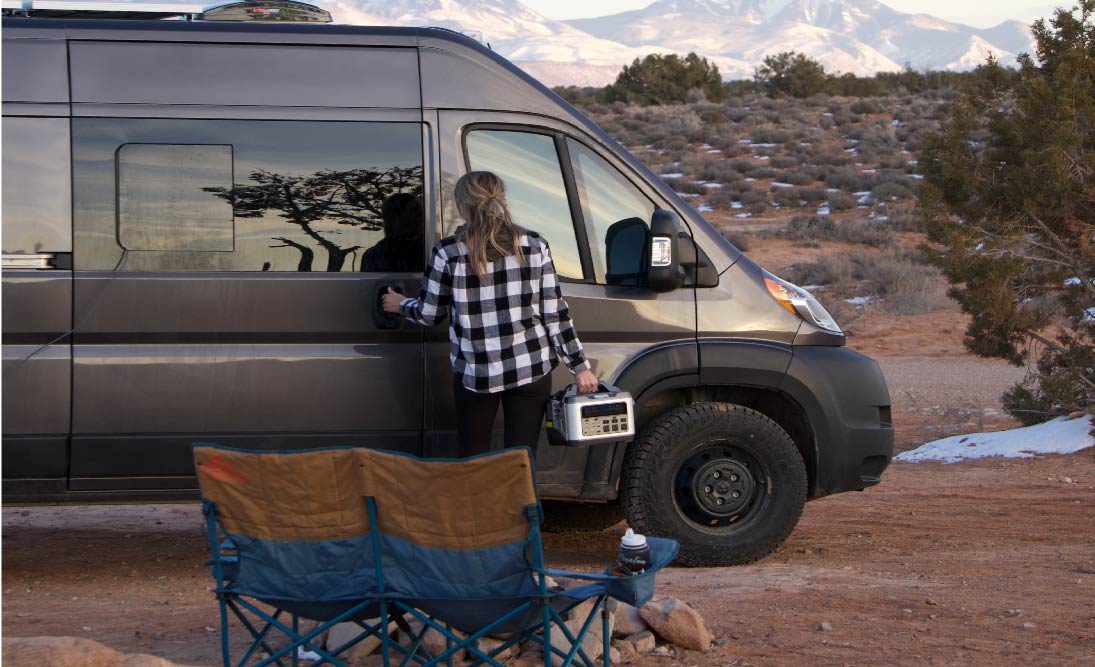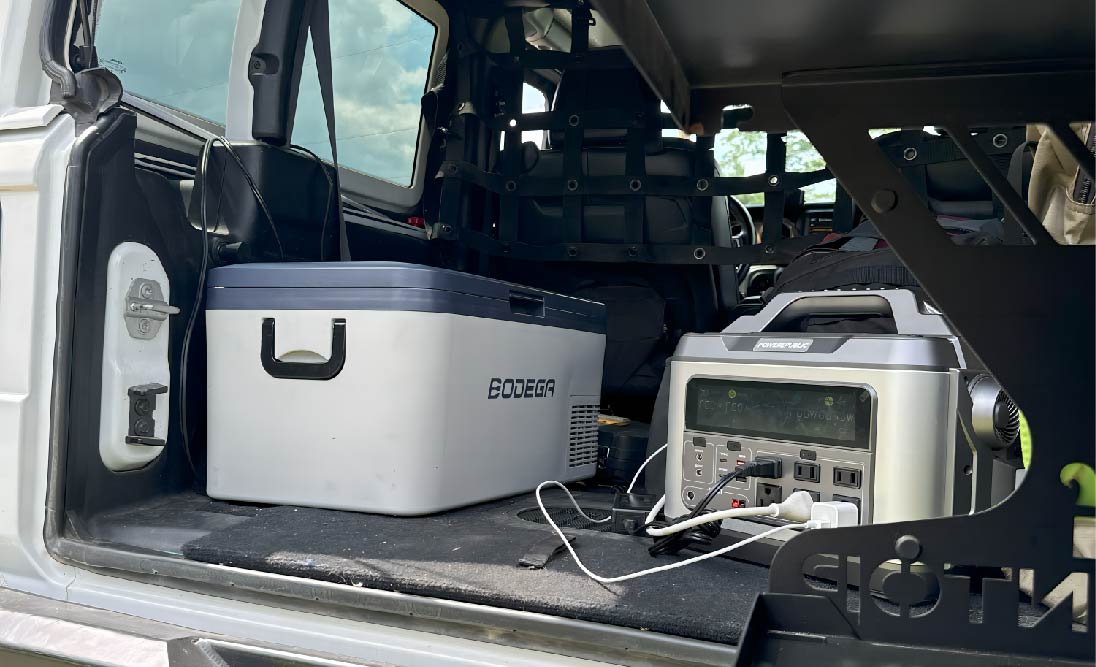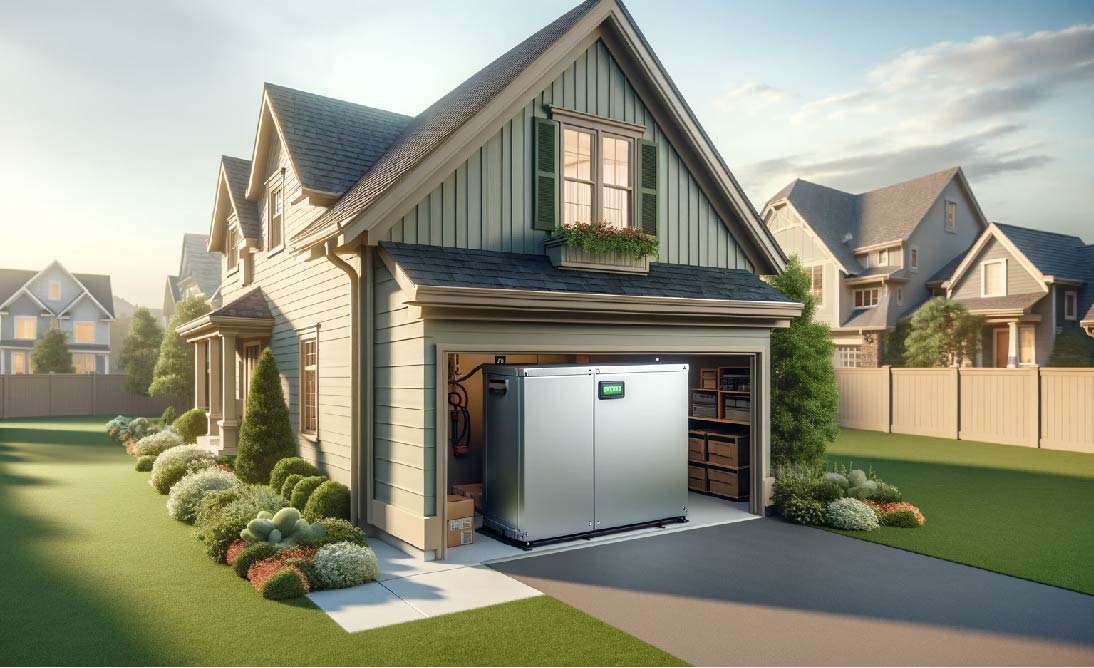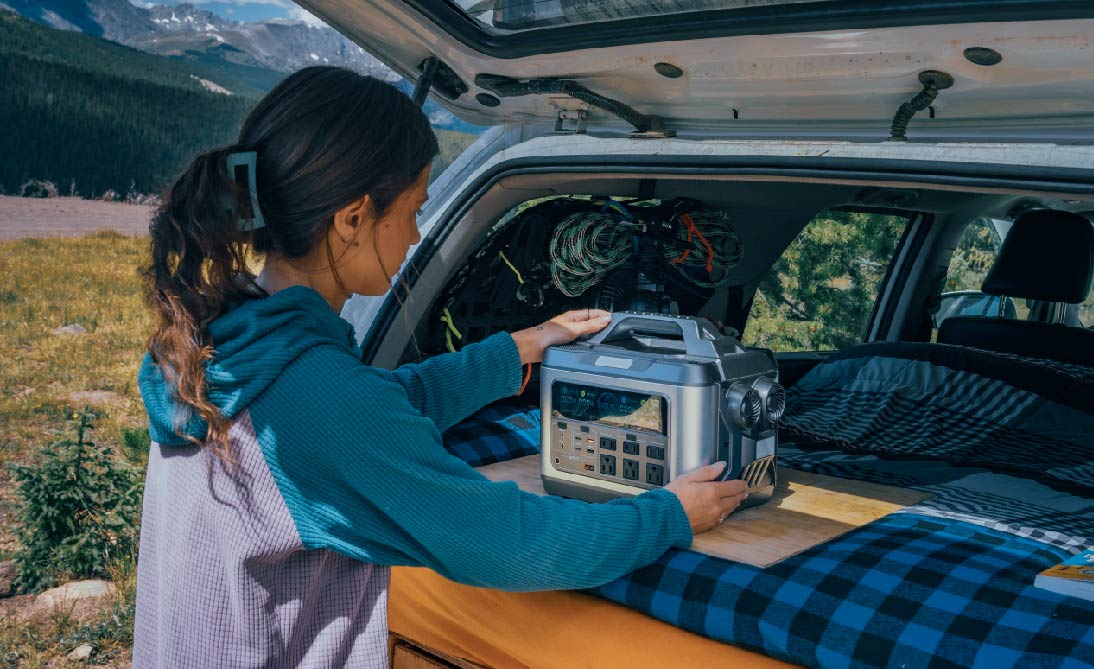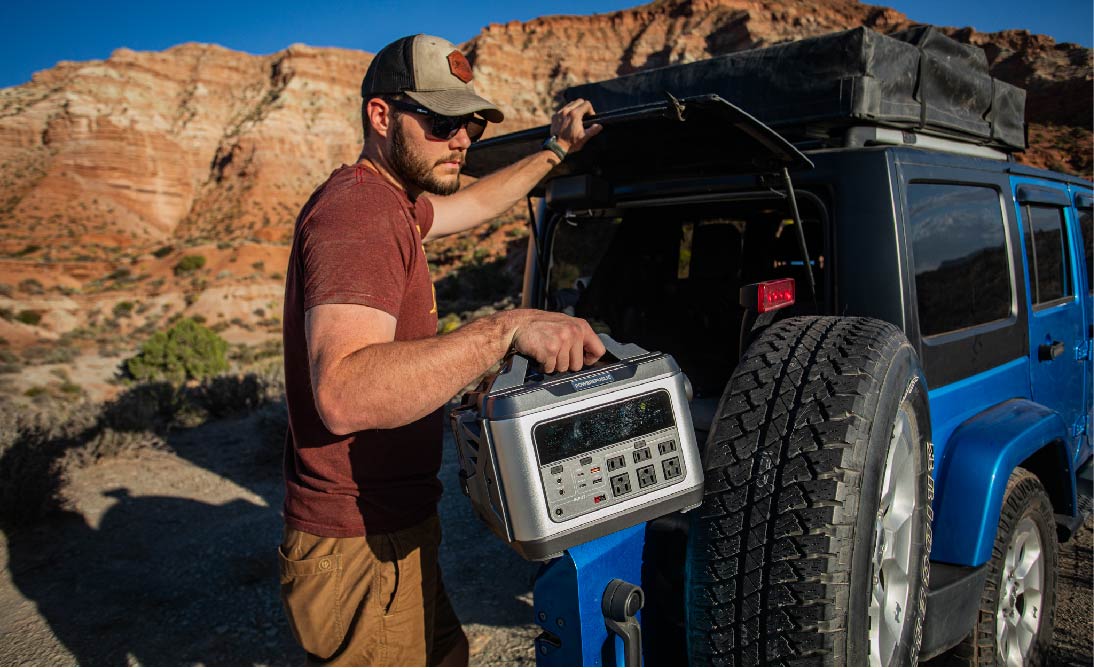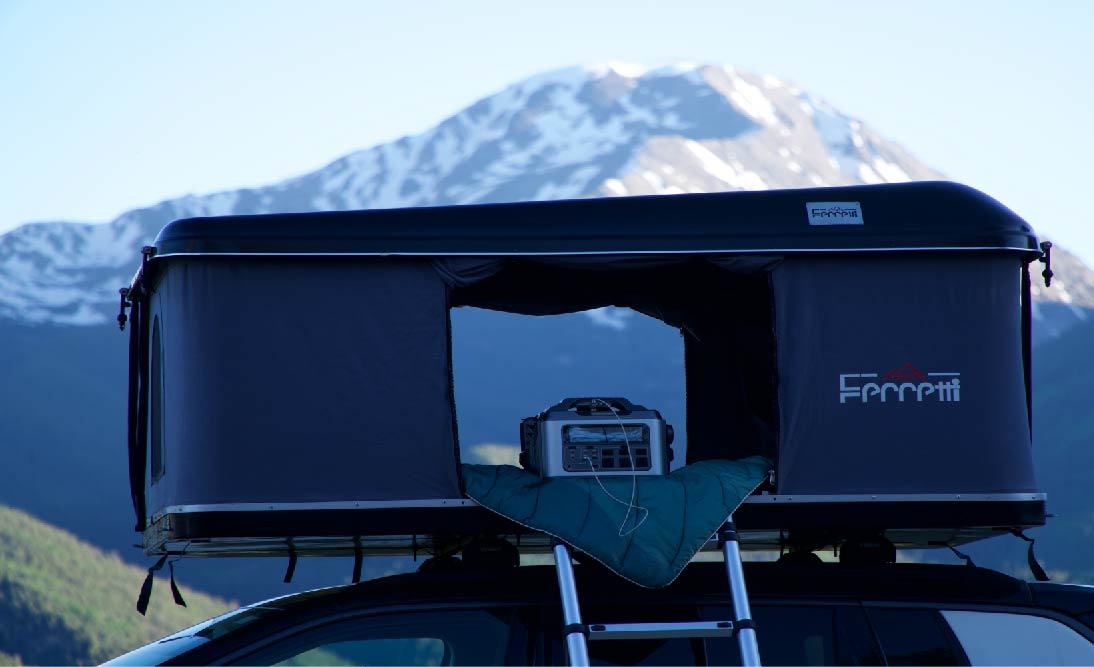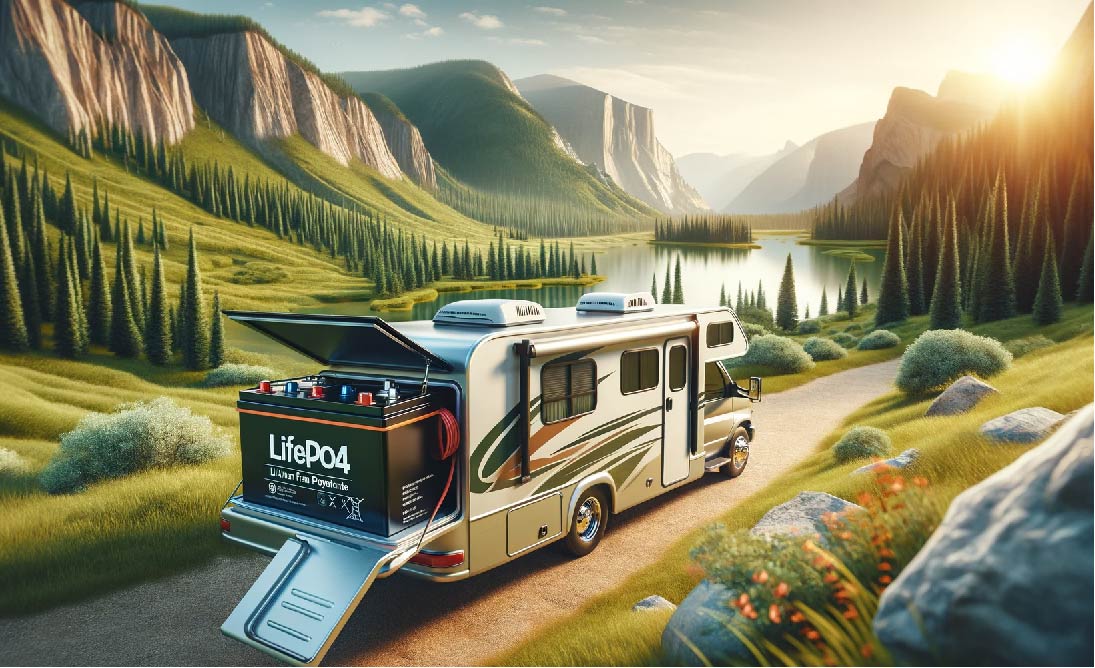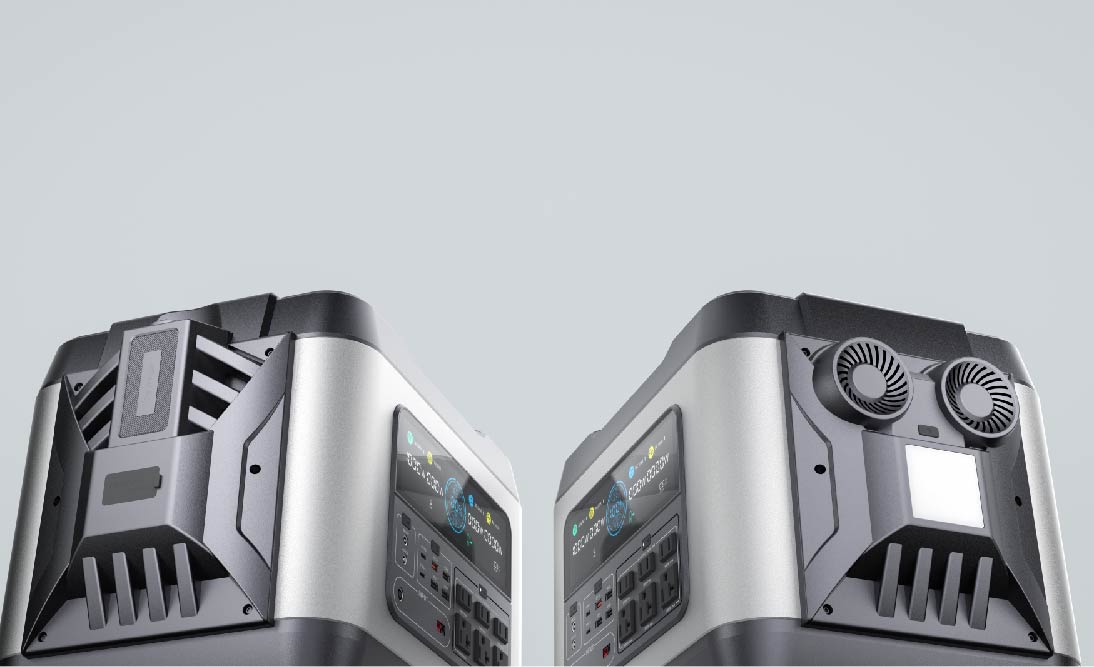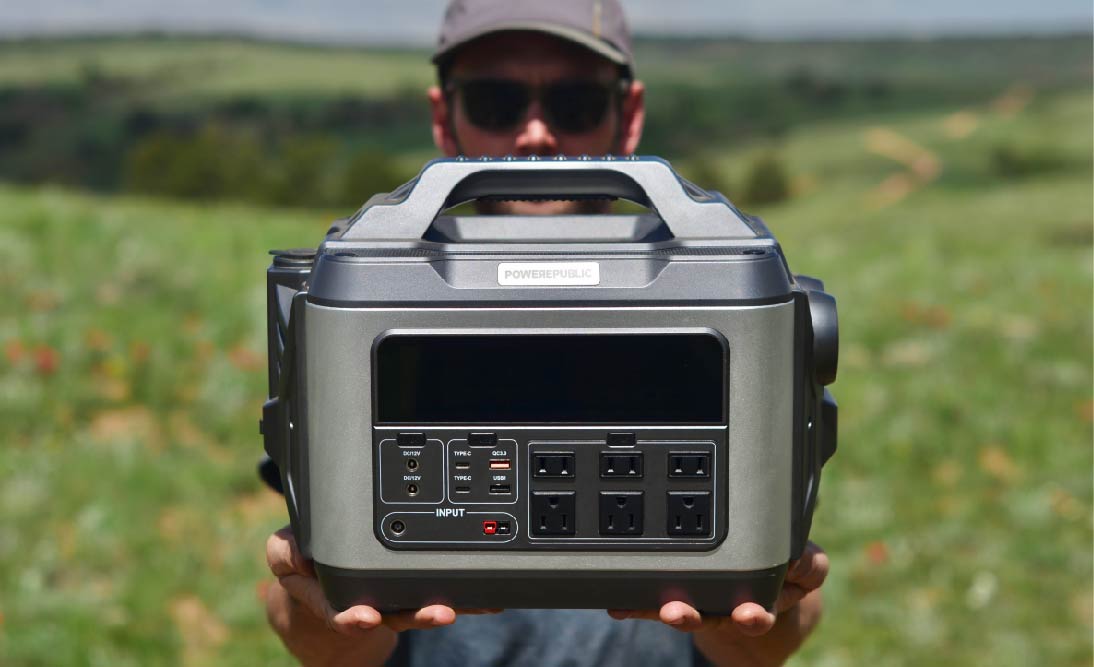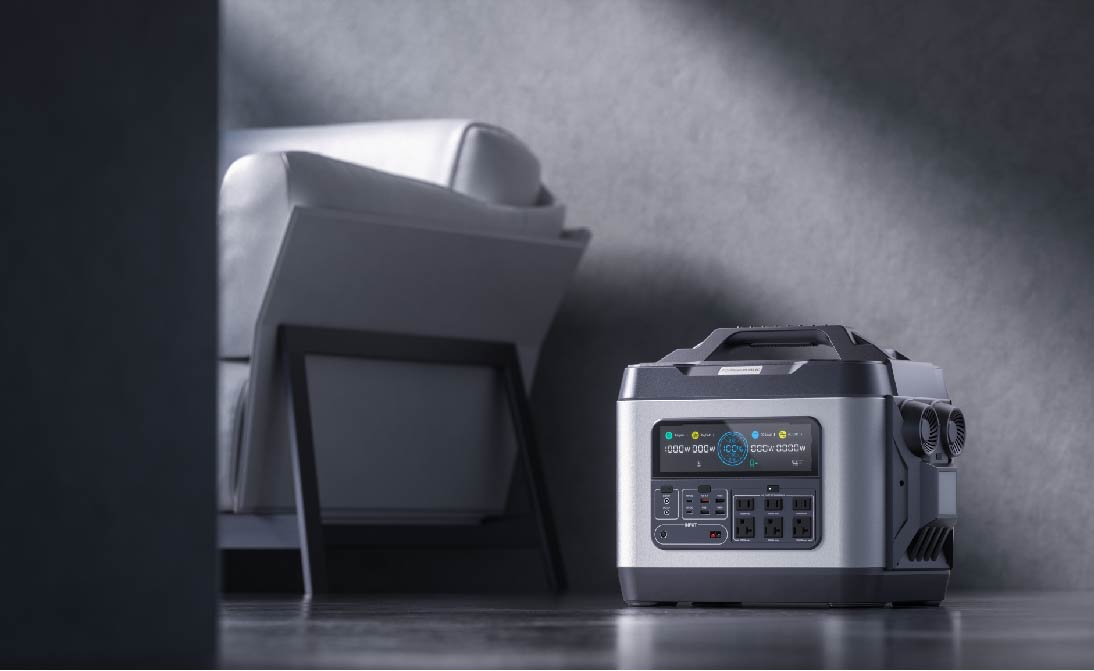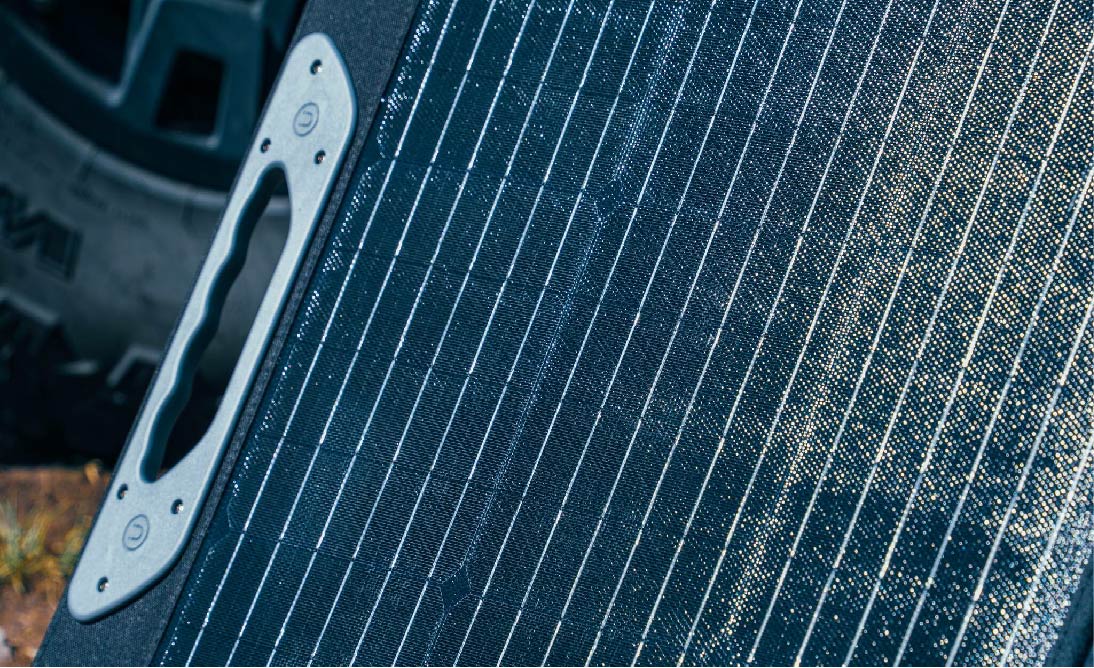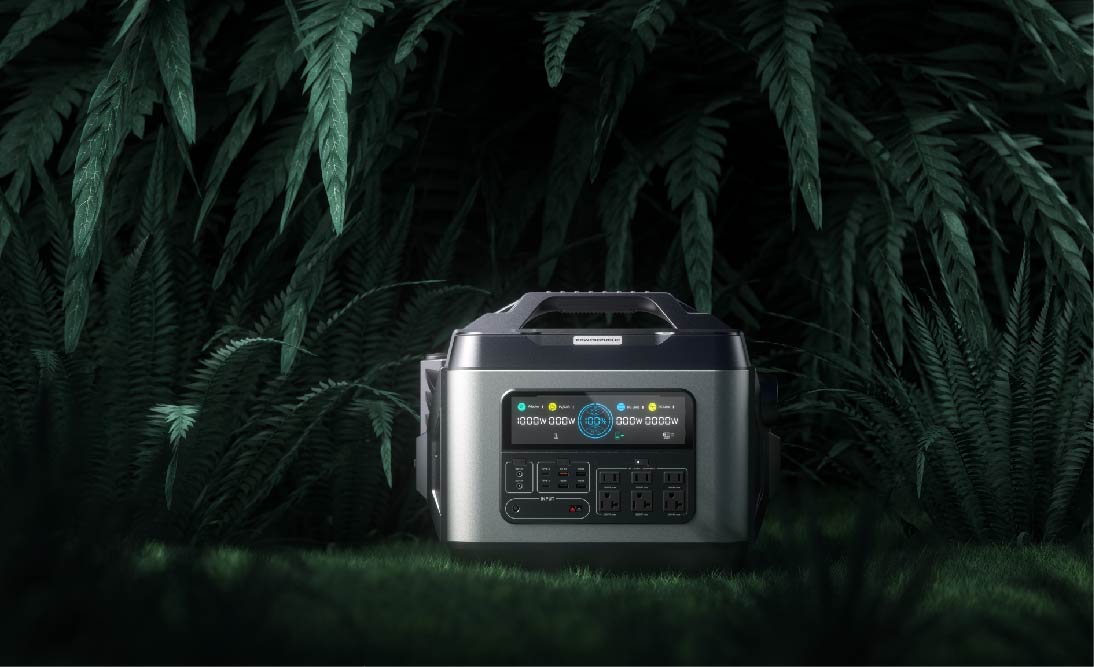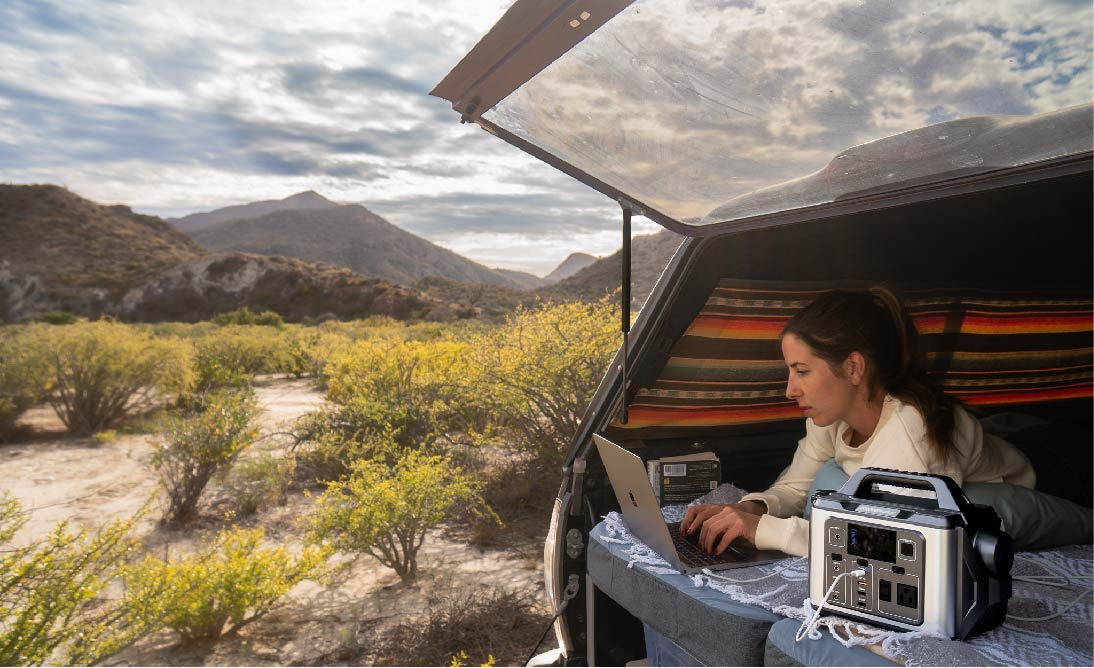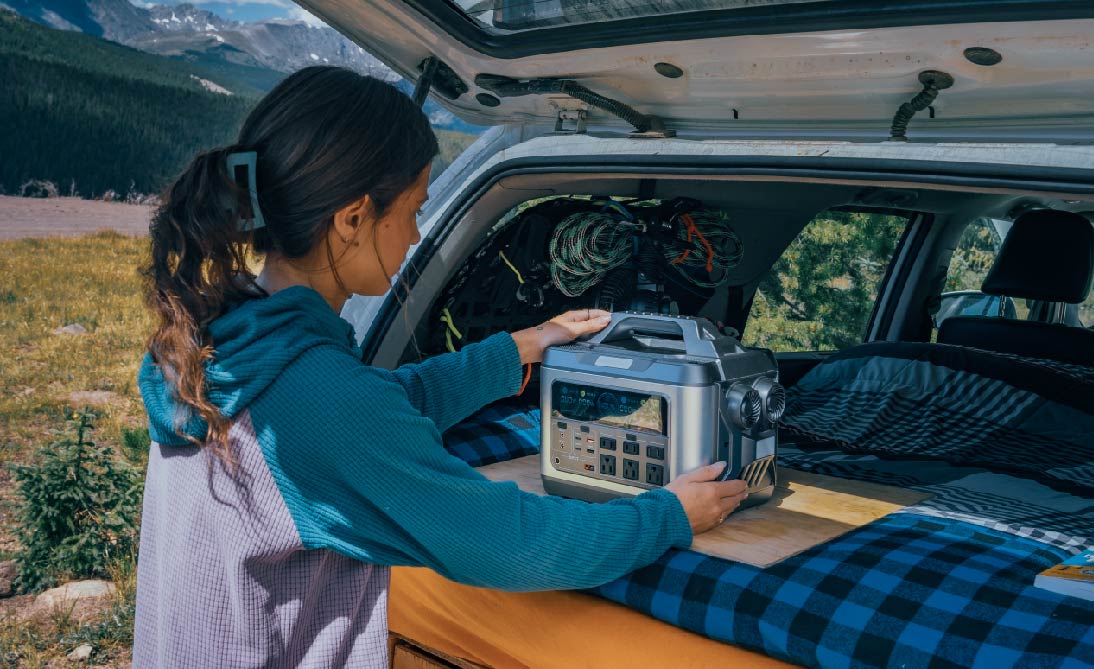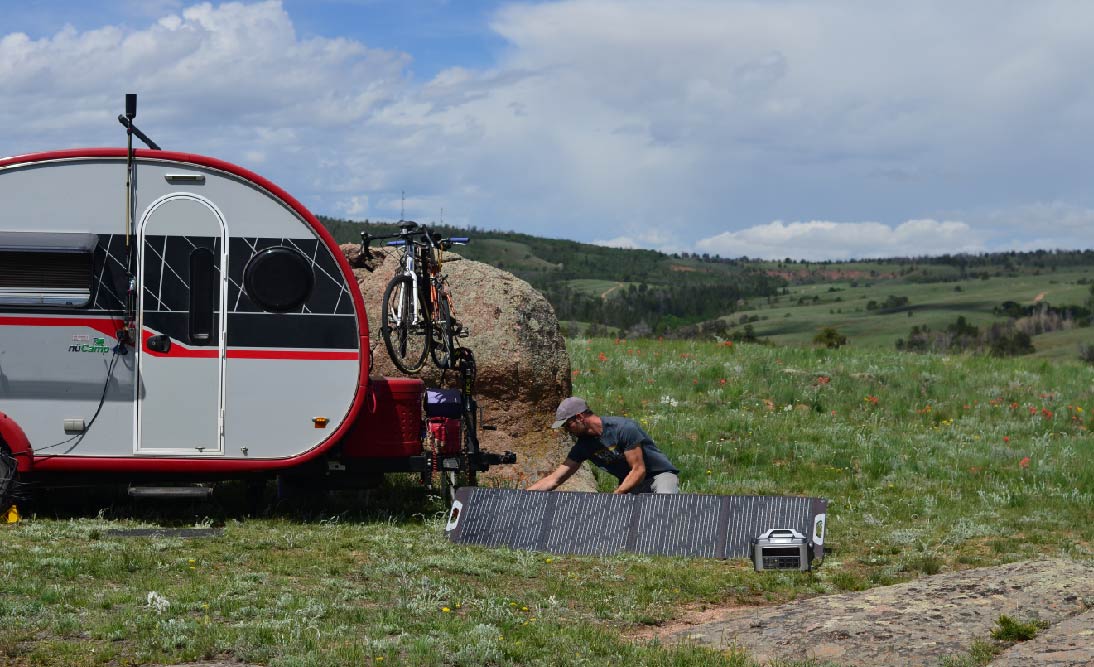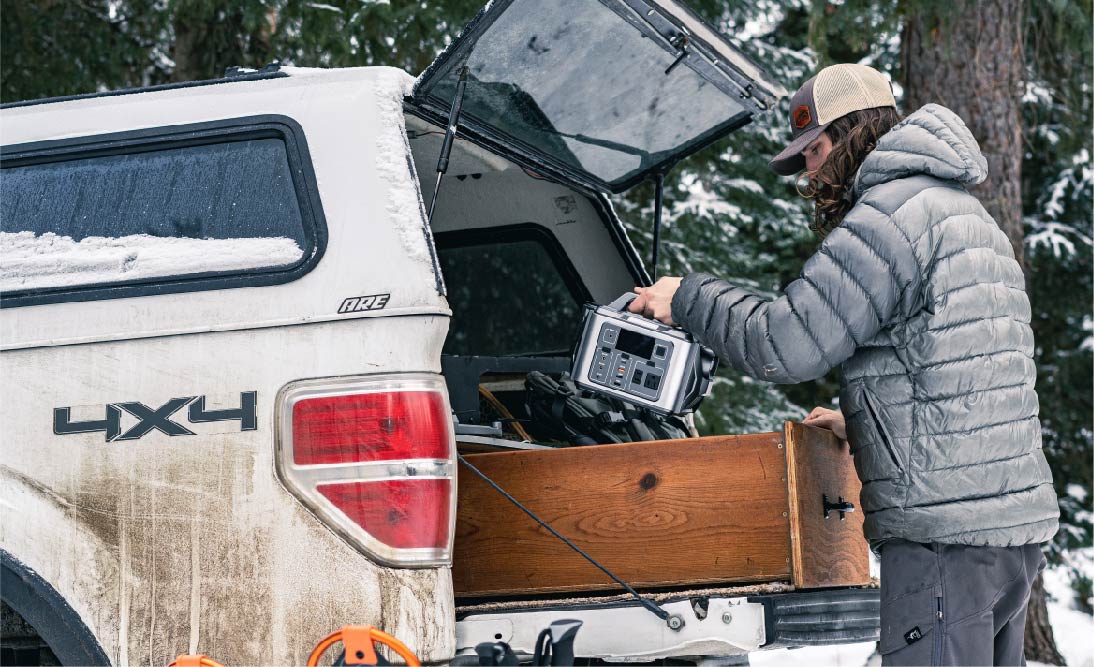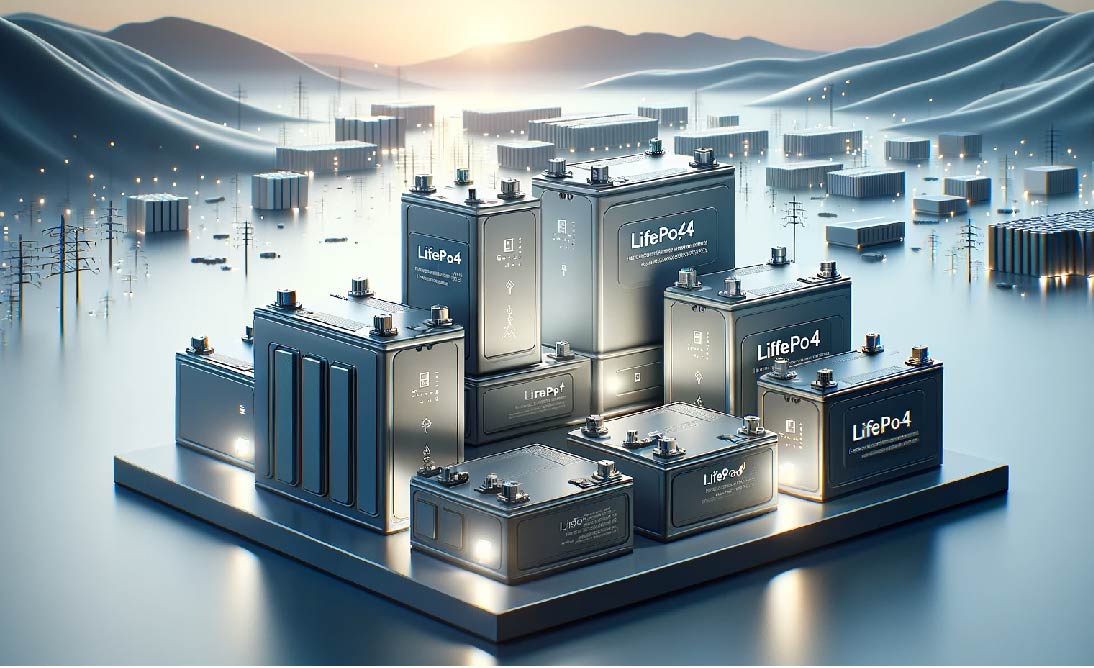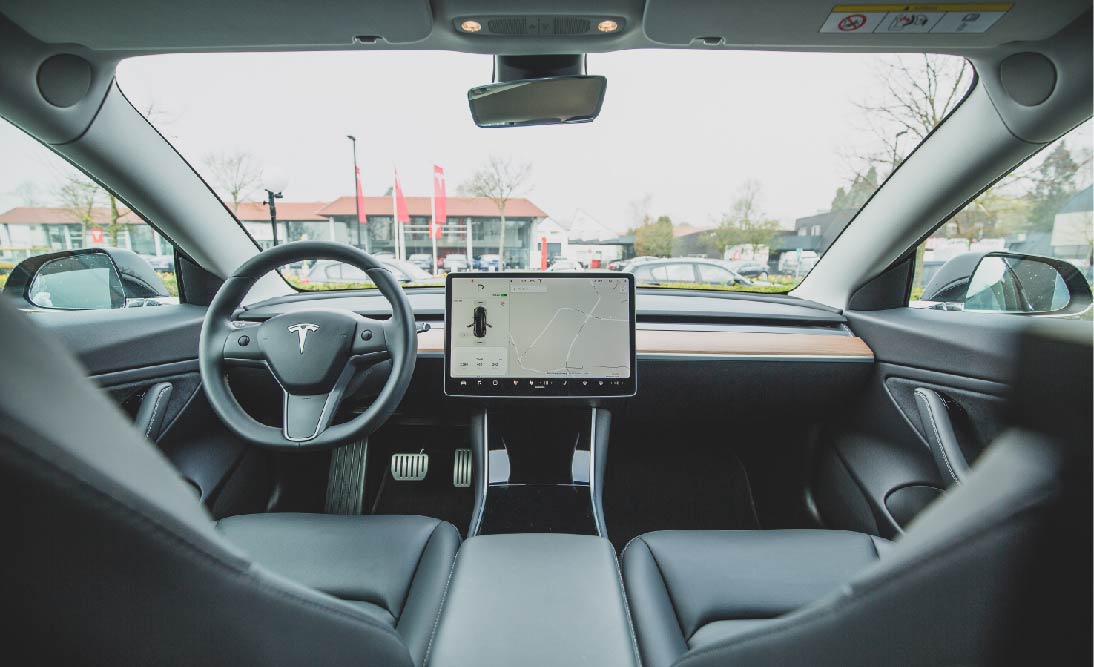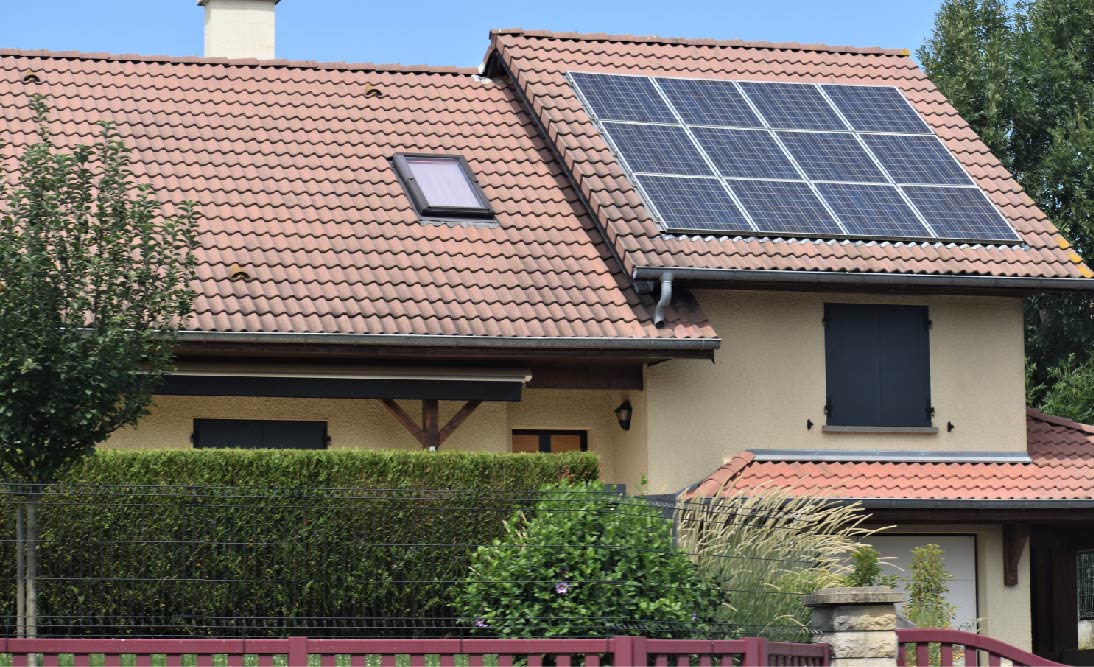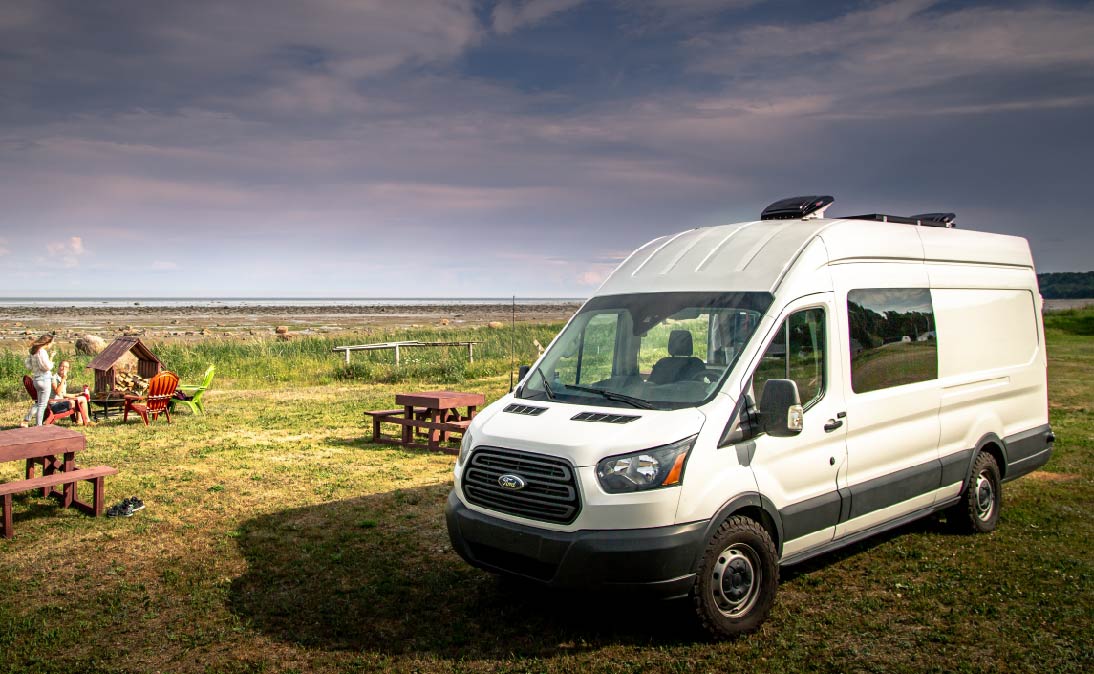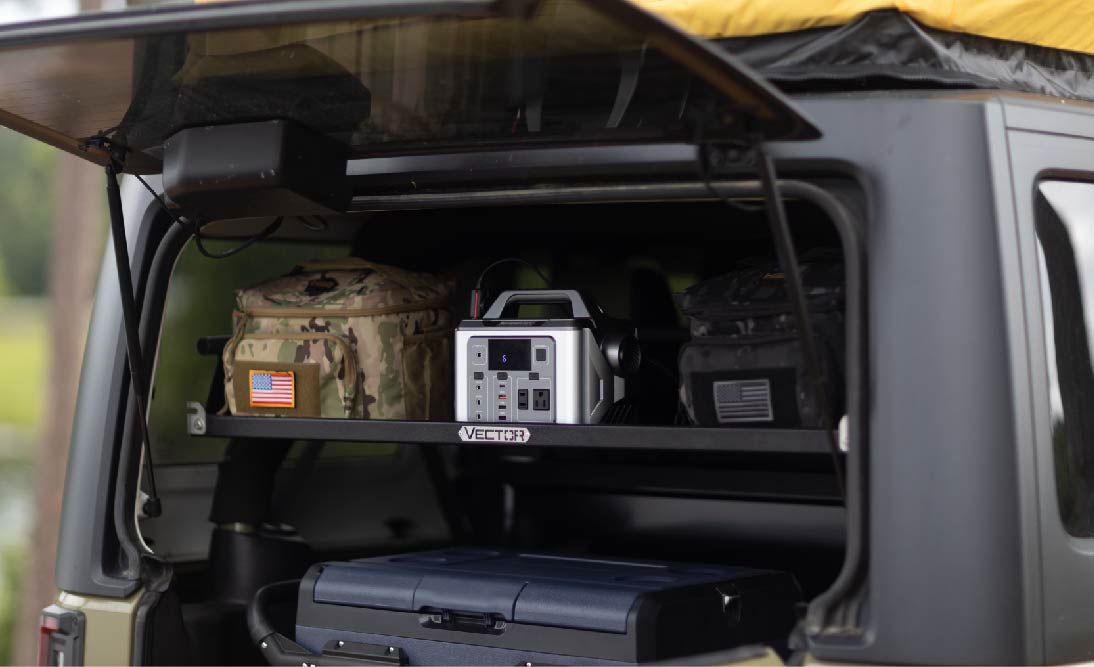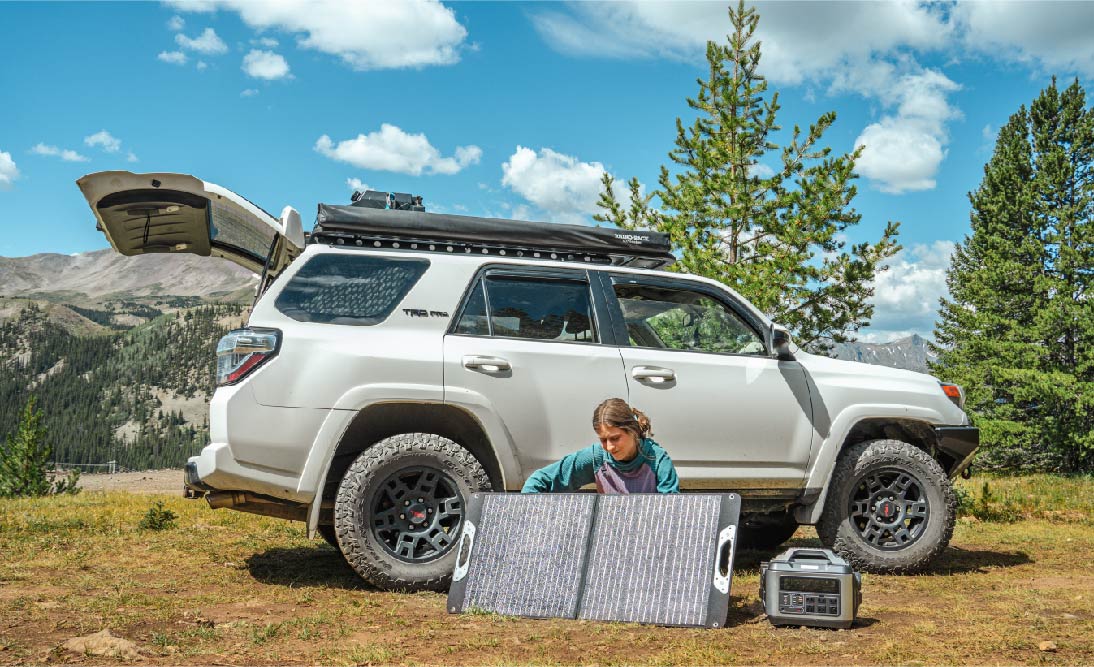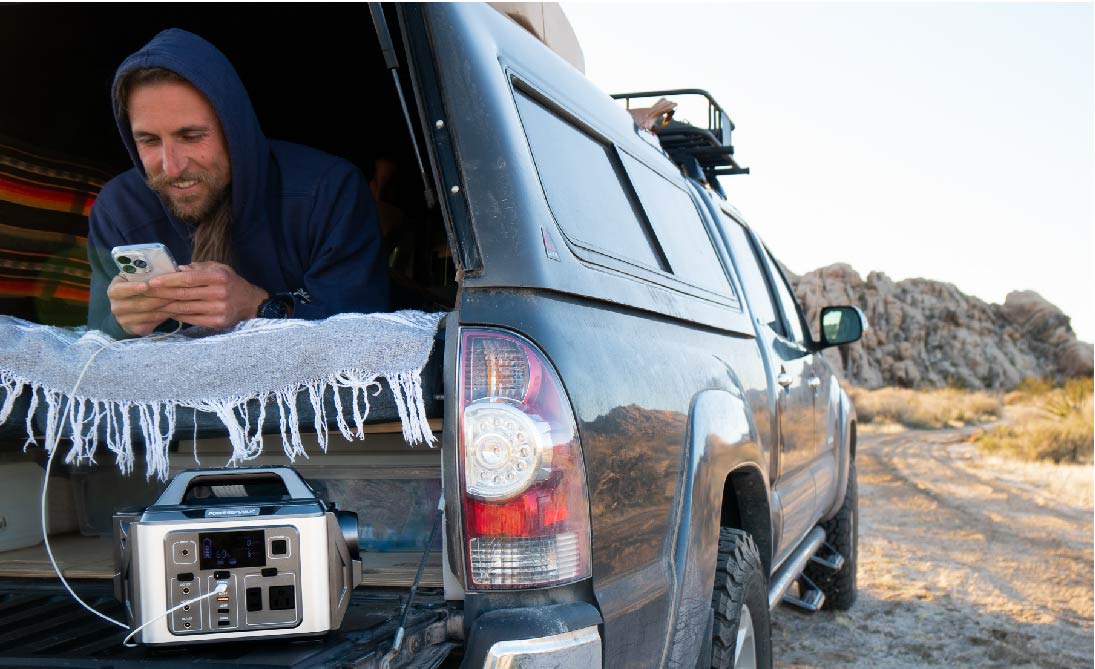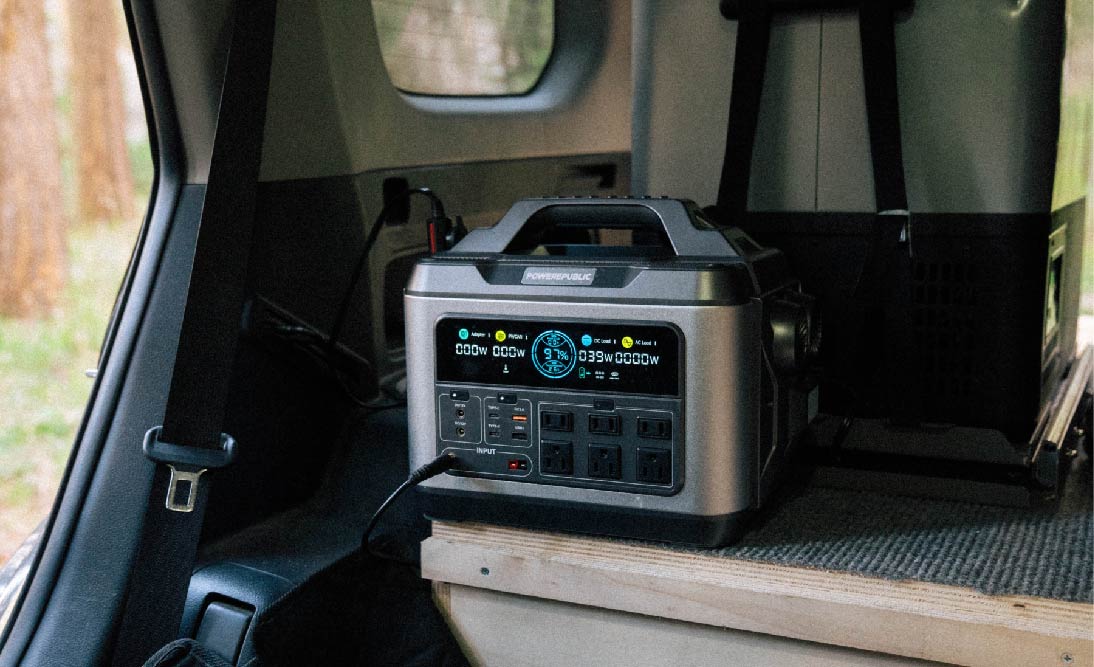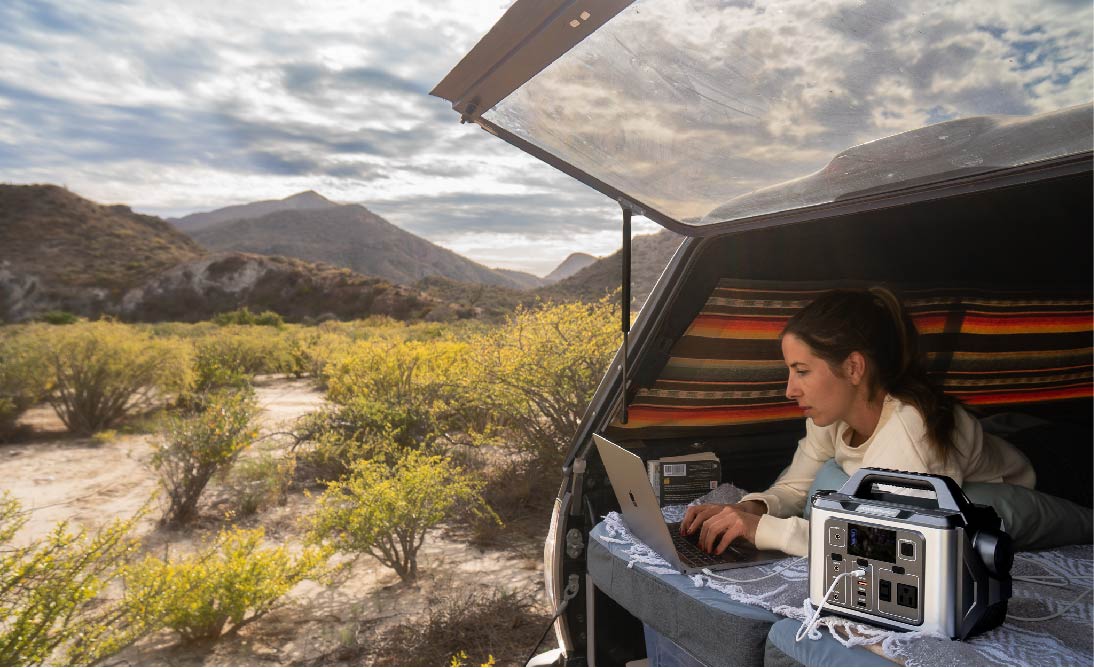Table of Contents:
Having reliable power solutions for home backup is crucial, especially if you are living in areas that frequently experience power outages during extreme weather conditions. Nowadays, solar energy has become one of the most popular energy sources among others for its unlimited, sustainability, and accessibility.
When people are in search of a home battery backup, one of the most frequently asked questions is, 'Can I use home battery backup without solar?' The answer to this is not a simple 'Yes' or 'No.' Instead, it depends on your specific power needs, budget, sun exposure, and other factors. By fully considering these factors, you will have a better idea of whether you need a whole-house battery backup with or without solar.
In this article, we will guide you through this question along with some fundamental details about home backup power solutions. We hope you will find it useful.
Types of Home Backup Power Solutions

To get started, let's talk about some common types of power solutions we encounter in our daily lives. Knowing about these everyday power sources will give you a good foundation for understanding the different home battery backups with and without solar panels.
These common power sources are used widely, from businesses to our homes, and they are crucial in meeting the various energy needs of our modern world. Having a grasp of these basics will help you make better sense of the world of home battery backup.
1. Traditional Generators
-
Gasoline Generators: These portable generators are fueled by gasoline or diesel and are commonly used for short-term power needs during outages. They are versatile but can be noisy and emit fumes.
-
Propane/Natural Gas Generators: These generators use propane or natural gas as a cleaner and quieter alternative to gasoline. They offer a reliable source of backup power.
-
Standby Generators: Permanently installed generators that automatically activate during power outages. They can run on natural gas or propane and provide continuous power to the entire home.
2. Solar Power Systems
-
Grid-Tied Solar Systems: Solar panels connected to the grid can reduce electricity bills and, with a battery backup system, provide power during outages. They export excess energy to the grid when available.
-
Off-Grid Solar Systems: These standalone systems consist of solar panels, batteries, and inverters. They are ideal for areas without grid access, providing independent power.
3. Solar Generators
-
Solar generators are portable power stations featuring a solar panel and an integrated battery. They can be charged from the sun or an electrical outlet and provide clean, quiet power for small appliances and devices during emergencies.
-
POWEREPUBLIC offers long-lasting and durable solar generators for home backup. Consider our T1200+PV200, T2200+PV200, or T3000 for reliable power sources.
4. Battery Backup Systems
-
Residential Battery Storage: Batteries like the Tesla Powerwall or LG Chem RESU store surplus energy from your solar system or the grid. During outages, they supply your home with stored power.
-
Uninterruptible Power Supplies (UPS): These smaller-scale batteries are designed for brief power backup to critical devices like computers and networking equipment, preventing data loss or downtime.
5. Wind Turbines
-
Small-scale wind turbines generate electricity from wind energy. They can be used alongside solar power systems or function independently, providing a backup power source in areas with consistent wind resources.
6. Hybrid Systems
-
Hybrid systems combine multiple power sources, such as solar panels, wind turbines, generators, and energy storage systems. This versatility ensures a more reliable backup power solution, especially in areas with variable energy sources.
7. DIY Solutions
-
DIY Solar Generators: Homeowners can create their own portable solar power stations by assembling components like solar panels, charge controllers, batteries, and inverters. These systems are customized to meet specific power needs and budget constraints.
-
DIY Power Stations: DIY power stations can be assembled using various components and power sources, providing homeowners with flexibility in designing backup power solutions tailored to their specific requirements.
By exploring these different types of backup power solutions, you can choose the one that best fits your needs, budget, and environmental preferences. It's essential to consider the specific requirements and conditions of your home when making a decision. Additionally, consulting with professionals or electricians is advisable to ensure the safe and proper installation of backup power systems.
How Do Home Backup Power Solutions Operate?

After providing you with a fundamental explanation of the power solutions above, let's proceed to discuss how they operate. It is important to know that not all power solutions need solar panels to operate.
To facilitate your understanding and comparison, we'll use a table that includes their operations and price ranges:
|
Backup Power Solution |
Operation |
Price Range (Approximate) |
|
Traditional Generators |
|
|
|
- Gasoline Generators |
Combustion of gasoline or diesel fuels powers an internal combustion engine, generating electricity. |
$200 - $1,500+ |
|
- Propane/Natural Gas Generators |
Combustion of propane or natural gas fuels the engine, producing electrical power. |
$1,000 - $5,000+ |
|
- Standby Generators |
Permanently connected to the home's electrical system. Automatically start during outages and run on natural gas or propane. |
$5,000 - $10,000+ |
|
Solar Power Systems |
|
|
|
- Grid-Tied Solar Systems |
Solar panels convert sunlight into electricity. Excess energy is sent back to the grid. During outages, they may shut down unless equipped with a backup battery. |
$5,000 - $15,000+ (excluding battery costs) |
|
- Off-Grid Solar Systems |
Solar panels generate electricity, which is stored in batteries. Inverters convert stored DC electricity into AC power, supplying the home. |
$10,000 - $30,000+ (including batteries) |
|
Solar Generators |
|
|
|
- Solar Generators |
Solar panels collect sunlight, converting it into electricity. This power is stored in a battery and made available through an inverter. |
$500 - $3,000+ |
|
Battery Backup Systems |
|
|
|
- Residential Battery Storage |
Batteries store surplus energy from solar panels or the grid. During outages, inverters convert the stored DC electricity into AC power for the home. |
$5,000 - $10,000+ (excluding solar panel costs) |
|
Small batteries provide instant power to specific devices when the main electricity source fails. |
$50 - $500+ |
|
|
Wind Turbines |
|
|
|
- Small-Scale Wind Turbines |
Blades rotate in response to wind, generating mechanical energy. This energy is converted into electrical power through a generator. |
$5,000 - $20,000+ |
|
Hybrid Systems |
|
|
|
- Hybrid Systems |
Combine various power sources (solar, wind, generators) with energy storage to provide continuous power by switching between sources as needed. |
$10,000 - $30,000+ (excluding solar and wind component costs) |
|
DIY Solutions |
|
|
|
Custom-built portable power stations with solar panels, batteries, and inverters. Converts solar energy into electricity. |
$500 - $1,500+ |
|
|
Versatile systems assembled by homeowners using different components and power sources, customized to meet specific needs. |
Variable, depending on the components chosen. |
Please note that the price ranges provided are approximate and can vary significantly based on factors like the brand, capacity, installation costs, and regional differences. It's essential to obtain quotes and conduct thorough research to determine the actual cost of these systems in your specific location.
Can Home Battery Backup Operate Without Solar Panels?

Yes, indeed!
For power solutions that primarily rely on fossil fuels for electricity generation, they can operate independently without solar panels. However, for those solutions that depend on solar panels to harness sunlight, they can function autonomously if they are fully charged or charged to at least 80-90% of their capacity. Some power solutions may offer alternative recharging options, such as using a wall outlet. If these options are unavailable, solar panels remain crucial for recharging the battery.
For better and easier understanding, we have made a table for you about whether a whole house backup battery can work without solar and what to pay attention to if you want to do so:
|
Backup Power Solution |
Can Work Without Solar Panels? |
What to Pay Attention To |
|
Traditional Generators |
Yes |
Fuel availability, maintenance, noise, emissions. |
|
- Gasoline Generators |
Yes |
Fuel storage, proper ventilation. |
|
- Propane/Natural Gas Generators |
Yes |
Proper gas supply, maintenance. |
|
- Standby Generators |
Yes |
Fuel source, professional installation. |
|
Solar Power Systems |
Yes |
Energy storage for grid-tied systems, battery backup for outages. |
|
- Grid-Tied Solar Systems |
Yes |
Battery backup for continuous power during outages. |
|
- Off-Grid Solar Systems |
Yes |
Proper battery maintenance, inverter efficiency. |
|
Solar Generators |
Yes |
Sufficient sunlight, battery capacity. |
|
- Solar Generators |
Yes |
Proper storage and maintenance. |
|
Battery Backup Systems |
Yes |
Battery maintenance, inverter efficiency. |
|
- Residential Battery Storage |
Yes |
Battery lifespan, inverter efficiency. |
|
Yes |
Runtime, device compatibility. |
|
|
Wind Turbines |
Yes |
Wind resource assessment, maintenance. |
|
- Small-Scale Wind Turbines |
Yes |
Proper installation, safety measures. |
|
Hybrid Systems |
Yes |
System integration, maintenance. |
|
- Hybrid Systems |
Yes |
Component compatibility, maintenance. |
|
DIY Solutions |
Yes |
Component selection, safe installation. |
|
Yes |
Solar panel placement, battery maintenance. |
|
|
Yes |
Component compatibility, safety measures. |
This chart provides information on whether each backup power solution can function without solar panels and highlights key considerations for each type. It's important to pay attention to these factors to ensure the effective and safe operation of your chosen option.
Can You Add Solar Panels Later If You Want To?

To answer this question, you must first ensure that your chosen backup power option is compatible with solar panels or have other charging options. Many options these days offer solar integration as a built-in feature during setup. If you don’t know, please consult a professional for assistance.
Here's a table indicating whether you can add solar panels later to each type of backup power solution and what to pay attention to:
|
Backup Power Solution |
Can You Add Solar Panels Later? |
What to Pay Attention To |
|
Traditional Generators |
Yes |
Installation and compatibility. Consider a hybrid setup. |
|
- Gasoline Generators |
Yes |
Compatibility with solar system. |
|
- Propane/Natural Gas Generators |
Yes |
Compatibility with solar system. |
|
- Standby Generators |
Yes |
Compatibility with solar system. |
|
Solar Power Systems |
Yes |
Expansion capability and inverter capacity. |
|
- Grid-Tied Solar Systems |
Yes |
Inverter capacity and available roof space. |
|
- Off-Grid Solar Systems |
Yes |
Inverter capacity and available roof space. |
|
Solar Generators |
Yes |
Compatibility with additional solar panels. |
|
- Solar Generators |
Yes |
Compatibility with additional solar panels. |
|
Battery Backup Systems |
Yes |
Compatibility with solar system components. |
|
- Residential Battery Storage |
Yes |
Compatibility with solar panels and inverters. |
|
Yes |
Compatibility with solar system components. |
|
|
Wind Turbines |
Yes |
Compatibility with solar components. |
|
- Small-Scale Wind Turbines |
Yes |
Compatibility with solar components. |
|
Hybrid Systems |
Yes |
Integration of solar components. |
|
- Hybrid Systems |
Yes |
Integration of solar components. |
|
DIY Solutions |
Yes |
Compatibility of solar panels and related components. |
|
Yes |
Compatibility of solar panels and related components. |
|
|
Yes |
Compatibility of solar panels and related components. |
This table provides information on whether you can add solar panels later to each type of backup power solution and what to consider when doing so.
It's essential to pay attention to compatibility and integration when incorporating solar panels into your backup power system. It’s your choice to choose have or not to have solar panels according to your power needs, your budget and the weather conditions.
Pros and Cons of Home Battery Backup Without Solar Panels

We know that home battery backups without solar panels can function normally if they are fully charged, have enough fossil fuel to keep them running, or have other recharging options.
Let’s talk about the pros and cons of various home battery backups without solar panels:
Traditional Generators without Solar Panels
Pros:
-
High power output for heavy loads.
-
Reliable during outages, ensuring continuous power.
-
Widely available and easy to maintain.
-
Independence from weather conditions.
Cons:
-
Generates noise and emissions.
-
Requires fuel storage and safety precautions.
-
Operating costs can accumulate over time.
-
Not environmentally friendly.
Solar Power Systems without Solar Panels
Pros:
-
Sustainable and eco-friendly power source.
-
Low operating cost after initial setup.
-
Potential for grid independence with energy storage.
-
Reduces carbon footprint.
Cons:
-
High upfront cost and installation.
-
Dependency on sunlight (no power at night).
-
Limited power during cloudy days.
-
May require battery storage for full autonomy.
Portable Power Stations/Solar Generators without Solar Panels
Pros:
-
Portability and versatility for on-the-go use.
-
Quiet and clean power source.
-
Suitable for camping and emergencies.
-
Easy setup and low maintenance.
Cons:
-
Limited power output for heavy loads.
-
Weather-dependent reduced efficiency in cloudy conditions.
-
Limited runtime on a single charge.
-
The potential need for multiple units for higher power.
Battery Backup Systems without Solar Panels
Pros:
-
Store excess electricity and utilize it during outages.
-
Potential for grid independence with sufficient capacity.
-
Low maintenance and long lifespan.
-
Reduces electricity bills through load shifting.
Cons:
-
High upfront cost and capacity limitations.
-
Limited runtime depends on the stored energy.
-
Efficiency losses during charging and discharging.
-
May require occasional battery replacement.
Wind Turbines without Solar Panels
Pros:
-
Renewable energy source with minimal operating costs.
-
Low environmental impact.
-
Potential for grid independence.
-
Suitable for windy locations.
Cons:
-
Location-dependent, may not be viable in areas with low wind.
-
Noise and aesthetic concerns.
-
Variable wind conditions affect power generation.
-
Initial setup costs and maintenance.
Hybrid Systems without Solar Panels
Pros:
-
Combines multiple energy sources for increased reliability.
-
Potential for grid independence and reduced environmental impact.
-
Customizable to specific energy needs.
-
May qualify for government incentives.
Cons:
-
Complex integration and maintenance.
-
Higher upfront costs and potential for system failures.
-
Dependency on multiple energy sources.
-
May not be suitable for all locations and applications.
DIY Solutions without Solar Panels
Pros:
-
Customizable and cost-effective for small-scale needs.
-
Educational and hands-on experience.
-
Potential for grid independence in limited applications.
-
Low operating costs.
Cons:
-
Limited power output for significant loads.
-
Maintenance and troubleshooting required by the user.
-
Limited reliability compared to professionally installed systems.
-
May not be suitable for critical applications or larger-scale needs.
Pros and Cons of Home Battery Backup With Solar Panels

After knowing the pros and cons of home battery backup without solar panels, let's talk about the pros and cons of with solar panels:
Traditional Generators with Solar Panels
Pros:
-
High power output when needed, especially during extended cloudy periods.
-
Backup power source when solar production is insufficient.
-
Reliable during outages, ensuring continuous power.
-
Combination of renewable and backup power.
Cons:
-
Generates noise and emissions when running on fuel.
-
Fuel storage and safety precautions are still required.
-
Operating costs for fuel may apply.
-
Not as eco-friendly as relying solely on solar power.
Solar Power Systems with Solar Panels
Pros:
-
Sustainable and eco-friendly with reduced carbon footprint.
-
Low operating cost once installed.
-
Potential for grid independence with energy storage.
-
Continuously produces electricity during sunny days.
Cons:
-
The high upfront cost for solar panel installation.
-
Limited power production during cloudy weather or at night.
-
Battery storage may be necessary for full autonomy, incurring additional costs.
-
Potential for system maintenance and replacement costs.
Portable Power Stations/Solar Generators with Solar Panels
Pros:
-
Portable and versatile for on-the-go use and outdoor activities.
-
Quiet and clean power source.
-
Easy setup and low maintenance.
-
Solar panels provide a renewable and eco-friendly energy source.
Cons:
-
Limited power output for heavy loads.
-
Weather-dependent reduced efficiency in cloudy conditions.
-
Limited runtime on a single charge.
-
May require multiple units for higher power needs.
Battery Backup Systems with Solar Panels
Pros:
-
Stores excess solar energy for use during the night or cloudy days.
-
Potential for grid independence with sufficient capacity.
-
Low maintenance and long lifespan.
-
Reduces electricity bills through load shifting.
Cons:
-
The high upfront cost for the combined solar and battery system.
-
Limited power during extended cloudy periods.
-
Efficiency losses during charging and discharging.
-
May require occasional battery replacement.
Wind Turbines with Solar Panels
Pros:
-
Dual renewable energy sources from wind and solar.
-
Low environmental impact with minimal operating costs.
-
Potential for grid independence.
-
Suitable for windy and sunny locations.
Cons:
-
Location-dependent, may not be viable in areas with low wind or sun.
-
Noise and aesthetic concerns from wind turbines.
-
Variable wind conditions affect power generation.
-
Initial setup costs and maintenance for both wind and solar components.
Hybrid Systems with Solar Panels
Pros:
-
Combines multiple renewable energy sources for increased reliability.
-
Potential for grid independence and reduced environmental impact.
-
Customizable to specific energy needs.
-
May qualify for government incentives and rebates.
Cons:
-
Complex integration and maintenance for multiple energy sources.
-
Higher upfront costs due to the combination of technologies.
-
Dependency on multiple energy sources may introduce complexity.
-
May not be suitable for all locations and applications.
DIY Solutions with Solar Panels
Pros:
-
Customizable and cost-effective for small-scale needs.
-
Educational and hands-on experience in renewable energy.
-
Potential for grid independence in limited applications.
-
Low operating costs and control over system components.
Cons:
-
Limited power output for significant loads.
-
Maintenance and troubleshooting required by the user.
-
Limited reliability compared to professionally installed systems.
-
May not be suitable for critical applications or larger-scale needs.
What To Consider Before Choosing a Home Backup Power Solution?

Before having a home backup power solution for your needs, it’s important to keep the following factors in mind to make the best out of your money:
Know Your Power Needs
-
Assess your daily and critical power requirements. Consider the essential appliances, devices, and systems you need to keep running during an outage.
-
Determine how long you need backup power. Are you looking for short-term emergency power or extended autonomy during extended outages?
Your Budget
-
Understand your budget constraints. Different backup power solutions vary in cost, and some may require significant upfront investments.
-
Consider not just the initial cost but also ongoing maintenance and operational expenses.
Fuel Source and Availability
-
For traditional generators, consider the type of fuel (e.g., gasoline, diesel, natural gas, propane) and its availability in your area.
-
Solar generators and battery backup systems rely on electricity and battery storage, so ensure a stable grid connection for recharging.
-
Wind turbines and hybrid systems depend on wind availability, which varies by location.
Environmental Impact
-
Evaluate the environmental impact of your chosen system. Traditional generators emit greenhouse gases, while solar, wind, and battery backup systems are cleaner options.
-
Hybrid systems that combine renewable energy sources can reduce your carbon footprint.
Installation and Maintenance
-
Consider the ease of installation and maintenance. Traditional generators may require professional installation and regular upkeep.
-
Solar and wind systems may need periodic maintenance but generally have lower ongoing maintenance costs.
Noise and Emissions
-
Take into account noise levels and emissions. Traditional generators can be noisy, which may not be suitable for residential areas.
-
Solar, wind, and battery systems are typically quieter and produce no emissions.
Reliability
-
Investigate the reliability of your chosen backup power solution. Some systems, like traditional generators, are known for their reliability, while others may be less dependable.
By carefully considering these factors, you can make an informed decision about the most suitable backup power solution for your home. Remember that each option has its advantages and limitations, and the best choice depends on your specific needs and circumstances.
Final Thoughts
In conclusion, selecting the right home backup power solution is a critical decision that hinges on a multitude of factors. Whether you opt for home battery backup with or without solar panels, understanding your power needs, budget, and the specifics of your location is paramount.
Each backup power solution, from traditional generators to solar systems, wind turbines, and DIY options, offers a unique set of advantages and disadvantages. For some, the reliability and immediate power output of traditional generators may be ideal, while others may prefer the sustainability and eco-friendliness of solar or wind power. Ultimately, the right choice is one that not only ensures your safety and comfort during power outages but also contributes to a more sustainable and resilient future.
If you are looking for a home battery backup without solar panels, explore POWEREPUBLIC Portable Power Stations.
If you are looking for a home battery backup with solar panels, explore POWEREPUBLIC Solar Generator Kits.
